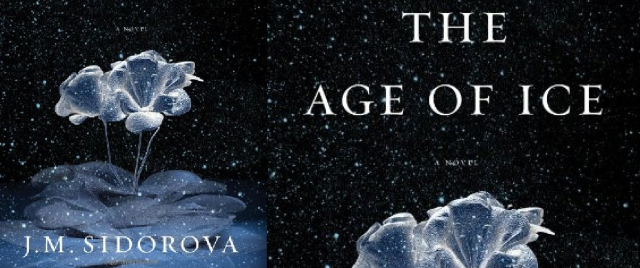Review: The Age of Ice is Part Tolstoy, Part Postmodern Magic
J.M. Sidorova's epic first work is available now.

J.M. Sidorova’s first novel, The Age of Ice, is not what I anticipate from epic fantasy, nor is it for everyone. In fact it seems to be the latest classical Russian novel: A story of Russian history told through the eyes of a strange hero, his unique conception and corresponding condition the main mark of “fantasy” found within. While it spans wars and ages and loves, The Age of Ice is not an adventure story.
The novel is born in a Russian tale of the Empress Anna Ioannovna building a palace of ice and forcing a pair of jesters to marry before making them spend the night consummating their marriage in her new palace. Sidorova’s hero, Alexander, is born of this match.
Alexander is a far cry from a standard fantasy protagonist. He does not begin overly naive and idealistic, fighting for cause and country against the Big Bad, nor is he battle-hardened and cynical, drawn out for one last run. Rather, as we learn early on, he is cold. Literally. He doesn’t feel the long Russian winters the way his compatriots do, he can freeze icicles like diamonds, and when angry or impassioned, his body feels like ice itself.
Alexander’s discovery of his differences barely sets the story in motion, a story that stretches over centuries and across countries as he eventually searches for answers to what has made him this way. This marks what I would consider to be one of the strongest aspects of the novel: It is unpredictable. For many avid readers of science fiction and fantasy, upon beginning a story one can often predict the main conflict, the role of various friends and lovers (including who is likely to cause betrayal, who is likely to die tragically), the denouement, and perhaps even the ending. But Sidorova’s tale travels through lands in a uniquely analytical manner, pulling the reader along so that we, like Alexander, don’t know how or why this seemingly never-ending story will or will not resolve.
While not written in a style I would consider “purple prose,” it is a far cry from the stark, simple clarity of writers like Hemingway. Yet Alexander’s detachment, both inherent and learned, clearly outline all his interactions, considerations, and views of the other characters. This does work to keep the reader somewhat remote from the secondary characters, emphasizing, time and time again, the theme of “cold” (even as Alexander tries to escape it in the hot deserts of Afghanistan).
While engrossing, I found myself waiting for Alexander’s metaphorical cold side to thaw, just a little, to let me see a touch of something more. While a compelling, intriguing character, and certainly one I was rooting for throughout, I had hoped for an earlier, deeper development of his character, and that of the other players in the book, that could have made The Age of Ice more than a new “Russian novel”– though if that’s your thing, you will certainly enjoy this book.
A final strange trait of the novel is the disconnect between showing and telling. While Alexander’s coldness is discussed, it is the removed style that subtly reinforces who he is, while simultaneously functioning to limit the reader’s view, so that many dialogues or events are described rather than experienced. It’s is an odd byproduct.
While well-written and researched, and a work that I would consider objectively “good,” I would not say The Age of Ice is through-and-through enjoyable. A man born with a unique, strange condition, battles and political intrigues, lost loves and family quarrels — I expected to be unable to put this book down. Yet the slow and often dry descriptions served to keep pulling me back out of the world Sidorova created, wondering when the work I’d initially hoped would recall Margaret Atwood or George R.R. Martin had become so much more reminiscent of Tolstoy or Dostoyevsky.
(image via Amazon)
- Amazon acquires Goodreads, angers and delights book nerds everywhere
- The Silent Stars Go By review plus interview with author Dan Abnett
- Watch the trailer for The Resurrectionist, a beautifully dark art book and novel
Have a tip we should know? tips@themarysue.com